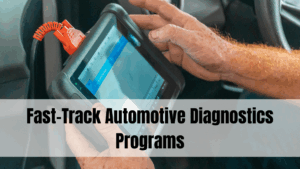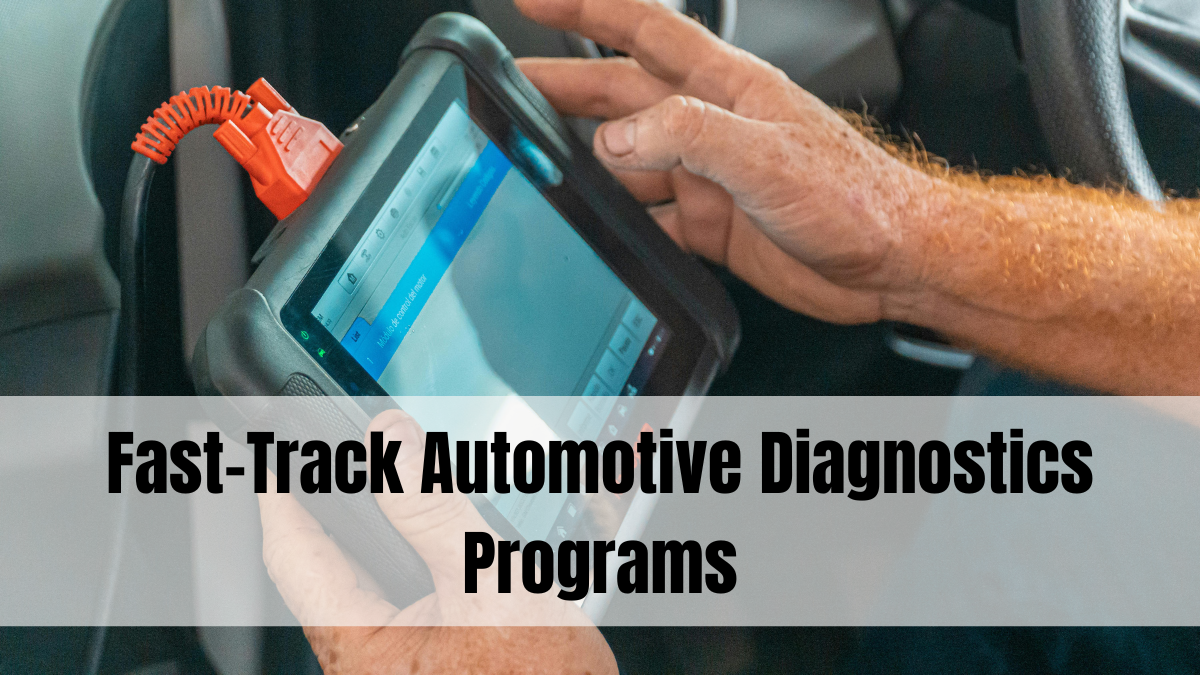The demand for highly skilled automotive technicians is soaring — and not just for general repairs, but for advanced diagnostics. As vehicles become more computerized, the industry urgently needs professionals who understand how to read sensors, decipher data, and diagnose electronic systems. This is where automotive diagnostics training steps in, offering fast-track programs that launch students into rewarding careers in record time.
From vocational institutes to community colleges, training centers are now offering short-duration, high-intensity courses tailored to match the rapid evolution of today’s vehicles. These programs are designed to bridge the growing skill gap in diagnostics and prepare students for real-world jobs with hands-on experience.

The Shift from Wrenches to Scanners
Traditional automotive repair once relied heavily on mechanical intuition. But today, cars are driven by dozens of onboard computers and thousands of lines of code. That means diagnostic skills are now just as valuable — if not more — than manual repair know-how.
Fast-track automotive diagnostics training programs teach students how to:
-
Use diagnostic scanners (OBD-II, CAN bus tools)
-
Interpret engine control module (ECM) data
-
Test electrical circuits and sensor outputs
-
Diagnose driveability and performance issues through software
These courses typically last 6–12 months and are ideal for both beginners and experienced mechanics looking to specialize.
Real-World Tools in the Classroom
One major highlight of these programs is access to industry-grade tools and simulators. Students are trained using:
-
Oscilloscopes for live waveform analysis
-
Digital multimeters for pinpointing voltage drops
-
Scan tools used in actual service centers
-
Virtual engine labs and wiring diagram simulators
This hands-on training prepares students for diagnostic challenges across a wide range of vehicle makes and models — including hybrids and electric cars.
Career-Focused Curriculum with Certification Prep
The curriculum in fast-track programs focuses entirely on diagnostics and troubleshooting. Rather than covering broad mechanical systems, the courses dive deep into electrical components, fault analysis, and system testing.
Most programs also offer ASE (Automotive Service Excellence) exam preparation, especially for certifications like:
-
A6: Electrical/Electronic Systems
-
A8: Engine Performance
-
L1: Advanced Engine Performance Specialist
These credentials help students gain credibility and land jobs with leading service centers and dealerships.
Flexible Learning Options for All
A key feature of modern automotive diagnostics training programs is flexibility. Many schools now provide:
-
Evening and weekend classes for working professionals
-
Remote theory classes combined with in-person labs
-
Accelerated courses for fast learners or career changers
This makes the programs highly accessible and suitable for people of different backgrounds, including veterans, women entering the trade, and displaced workers seeking reskilling.
Employer Demand and Industry Partnerships
Auto dealerships, independent repair shops, and fleet management companies are actively recruiting diagnostics-trained technicians. Many training institutions have formal partnerships with such employers, offering:
-
Direct placement opportunities
-
Paid apprenticeships
-
Co-op programs with job offers upon completion
Employers prefer candidates from diagnostics-focused programs as they bring problem-solving skills and tool proficiency right from day one.
FAQs
What is automotive diagnostics training?
It’s a specialized education program focused on teaching how to diagnose electrical and software-based issues in modern vehicles using tools and scanners.
How long does a fast-track diagnostics program take?
Most programs last between 6 to 12 months and focus intensively on diagnostic skills, electrical systems, and exam preparation.
Do I need prior experience in auto repair?
No. Many programs are beginner-friendly and teach foundational knowledge before progressing to advanced diagnostics.
Will I get certified after completing the course?
While the program itself may not offer direct certification, it typically includes prep for ASE exams such as A6, A8, and L1, which are industry-recognized.
Are there jobs available in automotive diagnostics?
Yes, diagnostics technicians are in high demand across dealerships, service chains, EV companies, and fleet management services.
Click here to know more.
